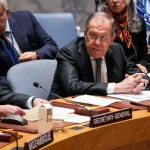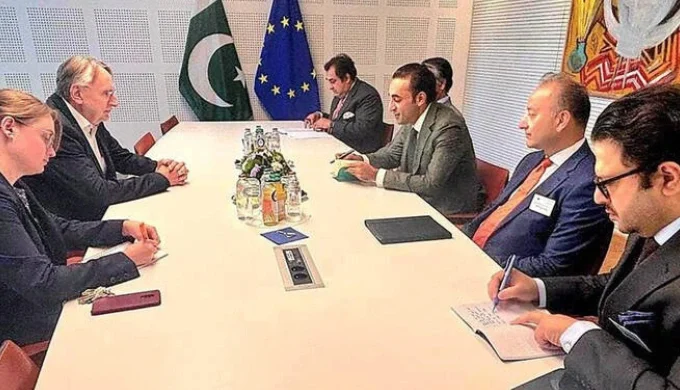This is the story of a long missed date which, perhaps, will finally take place. How could the European Union and Latin America – precisely the 33 Member States of the Community of Latin American and Caribbean States (CELAC) – have been able to ignore or almost ignore each other for so long? The summit of July 18 and 19, 2023, which was held in Brussels, is in fact the first for 8 years: at this stage, we should not expect spectacular results, although, the important thing being already in the fact of rediscover and express the sincere desire to work much better and more together. It is done, as announced in the preamble of the declaration of Josep Borell, the head of European diplomacy “Strengthening our partnership with this region is a strategic imperative. We are among the most aligned regions in the world in terms of interests and values. At the end of the meeting, Lula, the Brazilian President, summed up the general atmosphere in a phrase: “Rarely have I seen Europe show such great interest in Latin America”. It was about time, but this interest now makes perfect sense.
Common values and interests
First of all the values: today, and with the sad exception of the three dictatorships of the continent – Cuba, Venezuela, Nicaragua – Latin America is a vast liberal and democratic space, with of course many weaknesses and threats. We know that, on the side of the European Union, democracy is in the DNA. In a world where authoritarian regimes seem to be more and more numerous, ambitious and, it must be said, powerful, it is necessary that those who share Western values come together to defend them. And there is nothing obvious about this, especially in the face of Russian aggression against Ukraine, lukewarmly condemned by Latin Americans, who see it rather as an inevitable backlash from the sometimes misplaced imperialism of the West, and above all a threat to their food security and price stability.
Then the interests: geopolitical interests first, the two regions trying to escape the double influence / dependence vis-à-vis the two super-powers, that of the United States and that of China, as much as their emerging confrontation. Without losing sight, of course, at least on the European side, which is the strategic ally. Without losing sight either of the essential difference between the European Union, which is a solid and largely integrated bloc, while CELAC is a “club” which does not even have a permanent secretariat to date, even if the Latin America has been developing a self-awareness for a long time, which is reflected in numerous attempts at rapprochement and cooperation between States. Today, the wish shared by the two regions is that of autonomy in a multipolar world.
Economic interests of course: the scheme inherited from the colonial era, which considers Latin America as a resource of raw materials, mineral as well as agricultural, exported and valued elsewhere has had its day. Perhaps in the minds, certainly in the speeches. The idea at the center of economic and commercial rapprochement projects, which are numerous like the complex EU-Mercosur free trade treaty in the making, is that this economic relationship brings mutual benefits. Namely, for Latin America, that it sees the development of value chains on its soil. Argentinian President Alberto Fernandez himself acknowledged this, with a touch of cold humor: “It took five centuries to get out of the extractivist logic, but we finally got there”. As for Europe, in search of markets for its know-how and its products, it still needs more than yesterday and less than tomorrow the resources of copper, lithium, rare earths and other minerals essential to the transformation of its way of life and production in the era of the fight against climate change.
Latin America also needs massive investment in all its transport, energy, water, education, health, etc. infrastructure. to make a success of the double ecological and digital transition: the European Union has undertaken to provide, in various forms, 45 billion Euros in support of 130 projects, within the framework of Global Gateway, the European initiative which aims to counter the influence of the Chinese “Silk Roads” by wanting to be exemplary in terms of governance and social responsibility.
Cultural and human proximity
The ancient proximity between Latin America and Europe is also that of languages, Spanish, Portuguese, as well as French and English, that of cultures with an important European heritage in this mixed continent, that finally woven by men on the occasion of the convulsions of history. After having been a land of emigration, France was, for example, a land of welcome for political refugees during the era of dictatorships and cultural links remain strong. As for Spain, it welcomed in 2022, according to the National Institute of Statistics, 3 million people born in Latin America.
Waiting for France
First of all, it is necessary to remember that France is a Latin American power, present on the continent through Guyana, also present in the region with its Caribbean islands. As we have mentioned, France also maintains real ties, culturally and in both directions, with the region, where it is also very present through its diplomatic network, that of the Alliances Françaises, and numerous companies. France, finally, is “lucky” not to suffer in this region from the status of former colonial power, a status that is increasingly difficult for Spain to assume, confronted with resentments that are more or less exploited for internal policy, due to behavior prior to independence.
France, a former colonial power, is in decline, it is nothing to say, in Africa. A secondary power in the Asia-Pacific zone, it ultimately does not have any decisive weight on the major diplomatic fields where the future of the planet seems to be at stake. Beyond its status as a permanent member of the UN Security Council (but what does it weigh when the interests of the other 4 “big” are involved?), its cultural soft power and the magisterium moral (but what does it weigh in a world where realpolitik regains its preponderant place without masks), tending to slip from respect for human rights to the protection of the environment (in which its means of action remain limited), what is France waiting for to assert itself as a driving force and a leader in the relationship between Europe and Latin America, the stakes of which are now strategic?
President Macron’s first visit to the region – he has not been there once since his election in 2017 – will be a welcome sign of a new awareness, the hope of a new chapter in the relationship between the two continents and the prospect of a different future for the two transatlantic blocs.
This article is originally published on opinion-internationale.com









